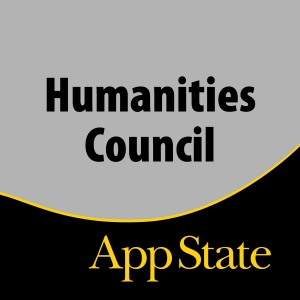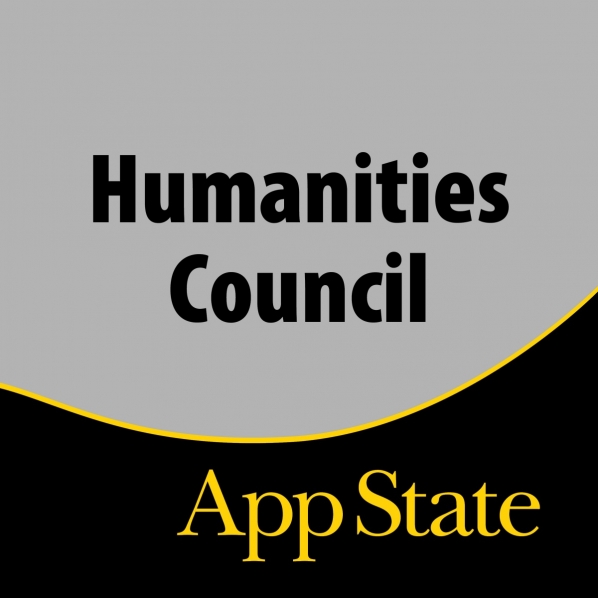In conjunction with the Fall Humanities Council Symposium on Sept. 29, the Council will host a four-part series of book discussions on Timothy Snyder’s most recent work, “On Tyranny: Twenty Lessons from the Twentieth Century.”
Participants are advised to register for these discussions, via email to lovens@appstate.edu and must attend at least one session to receive a copy of the book. Registrants will be asked to indicate the session(s) they wish to attend and provide a mailing address to receive the book. Sessions are free and open to the public.
Having spent his career examining the tragedies and atrocities of the 20th century, Snyder has studied the ways in which shifts and changes, both large and small, have led to the failure of democratic principles and ideals. As he writes, “History does not repeat, but it does instruct”—and we must heed its warnings.
Snyder offers readers a guide to identifying and understanding the frightening parallels that exist between our current reality and the reality faced by Europeans of the 20th century. He delves deeper, using history to show us how to effectively resist and bring about change. “On Tyranny” offers ideas for how we can preserve our freedoms in the years to come through a series of 20 lessons.
Timothy Snyder is the Richard C. Levin Professor of History at Yale University. He is the author of “Bloodlands,” “Europe Between Hitler and Stalin” and “Black Earth: The Holocaust as History and Warning.” Snyder is a member of the Committee on Conscience of the U.S. Holocaust Memorial Museum and a permanent fellow of the Institute for Human Sciences in Vienna.
The four book discussions hosted by the Humanities Council, about “On Tyranny” are as follows:
- "Is this what democracy looks like? Resistance, disobedience and non-conformity"
Wednesday, Sept. 13, noon - 1 p.m.
Three Top Mountain, Room 169, Plemmons Student Union, Appalachian
Facilitators: Dr. Sushmita Chatterjee, Director of the Gender, Women's and Sexuality Studies Program in the Department of Cultural, Gender and Global Studies and Dr. Phillip Ardoin, Department of Government and Justice Studies
- "Who's telling the truth? How lies, fake news and propaganda undermine democracy
(and how language can save it)"
Wednesday, Sept. 20, 7 - 8 p.m.
Watauga County Public Library meeting room, Boone
Facilitators: Newly Paul, Department of Communication;
Dr. Kevin Mullinix, Department of Government and Justice Studies and
Melanie Childers, pastoral care at Watauga Medical Center
- "Are you a patriot? The meanings of patriotism, populism and America First'"
Wednesday, Sept. 27, noon - 1 p.m.
Table Rock, Room 201B, Plemmons Student Union, Appalachian
Facilitators: Dr. Michael Behrent, Department of History;
Dr. Cameron Lippard, Department of Sociology and
Tamara Franks, pastor at High Country United Church of Christ
- "Are your rights disappearing? Preserving the rule of law"
Wednesday, Oct. 4, 7 - 8 p.m.
Watauga County Public Library, meeting room, Boone
Facilitators: Dr. Cary Fraser, Department of Government and Justice Studies;
Dr. Paul Gates, Department of Communication and Todd Carter, President, Watauga County NAACP
These events are made possible by cross-collaborative efforts at Appalachian including the College of Arts and Sciences, the Humanities Council, Belk Library and Information Commons, the Center for Judaic, Holocaust and Peace Studies, The Honors College, The College of Education, Academic Affairs and the following departments: Anthropology; Cultural, Gender and Global Studies; History; Geography and Planning; Communication; Art; Philosophy and Religion; Government and Justice Studies; Sociology and English.
The Humanities Council Symposium titled “Sustaining Democracy: Existence, Persistence, Resistance” will take place on Sept. 29 from 9 a.m. - 4 p.m. in the Blue Ridge Ballroom of Appalachian’s Plemmons Student Union. Admission is free and the event is open to our campus and community.
The symposium will feature three speakers: Dr. Abram Van Engen, associate professor of English and a faculty affiliate in the John C. Danforth Center on Religion and Politics at Washington University in St. Louis; Dr. George T. Pappas, an attorney from Asheville, representing clients in U.S. immigration law, criminal law, family law and civil litigation; and Dr. Timothy Snyder, the Richard C. Levin Professor of History at Yale University and a permanent fellow at the Institute for Human Sciences in Vienna.
For more information, visit the Humanities Council website at: www.humanitiescouncil.appstate.edu.
###
Sept. 1, 2017
By Ellen Gwin Burnette
BOONE, N.C.
About the Humanities Council
Appalachian State University’s Humanities Council provides interdisciplinary opportunities and events on campus throughout the year, promoting the importance of the humanities in relationship to other fields.
About the College of Arts and Sciences
The College of Arts and Sciences is home to 16 academic departments, two stand-alone academic programs, two centers and one residential college. These units span the humanities and the social, mathematical and natural sciences. The College of Arts and Sciences aims to develop a distinctive identity built upon our university's strengths, traditions and unique location. Our values lie not only in service to the university and local community, but through inspiring, training, educating and sustaining the development of our students as global citizens. There are approximately 5,850 student majors in the college. As the college is also largely responsible for implementing Appalachian's general education curriculum, it is heavily involved in the education of all students at the university, including those pursuing majors in other colleges. Learn more at cas.appstate.edu.
About Appalachian State University
Appalachian State University, in North Carolina’s Blue Ridge Mountains, prepares students to lead purposeful lives as global citizens who understand and engage their responsibilities in creating a sustainable future for all. The transformational Appalachian experience promotes a spirit of inclusion that brings people together in inspiring ways to acquire and create knowledge, to grow holistically, to act with passion and determination, and embrace diversity and difference. As one of 17 campuses in the University of North Carolina system, Appalachian enrolls about 18,000 students, has a low student-to-faculty ratio and offers more than 150 undergraduate and graduate majors.

